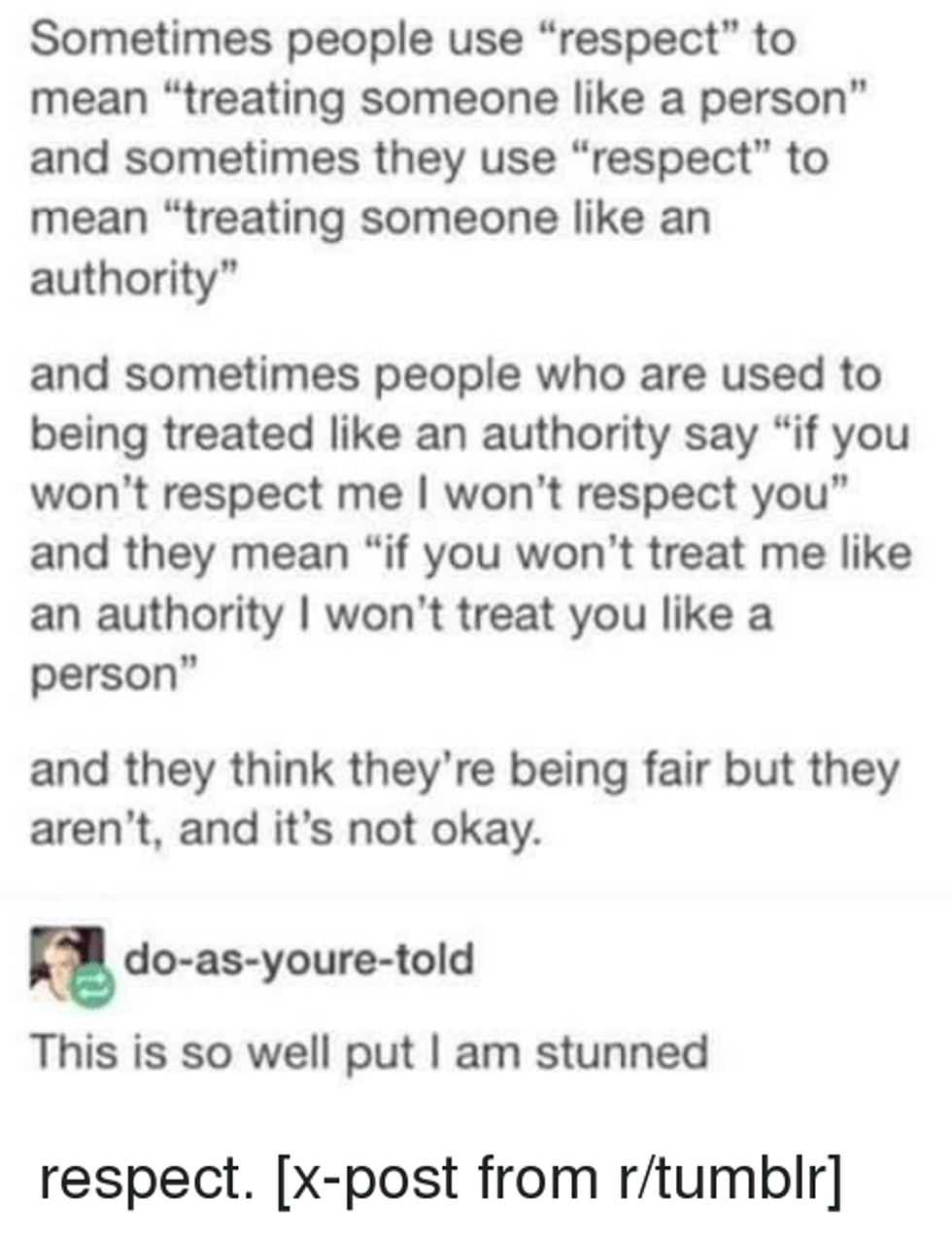I'm not a teacher. I've never been stuck in a classroom with 30 kids trying to convince them to want to learn. However, I've been a student, and never have I ever felt more disrespected than when a teacher said or did any of these 10 things. I realize it may be "part of a teaching method," or "just trying to control the classroom," but that isn't a good enough excuse. Teachers can't force students to read, they can't force them to want to come to school, but they can respect students enough to warrant respect in return (even though they can't force students to respect them either). So if teachers avoided these 10 things, I hypothesize that their students would respect them more (and like them more...).
1. "I'll wait"
I know it's disrespectful when students talk over a teacher while they're teaching, but saying "I'll wait" just makes the students feel disrespected. Trying to squash the disrespect out of someone by disrespecting them is like fighting fire with fire: you just get burned.
2. Purposeful embarrassment
I've seen this countless times; a teacher asks a question, a student confidently offers an answer, the answer is incorrect and the teacher reacts by either laughing or poking fun at the student's incorrect answer. It can be scary for some students to so much as offer an answer in class, so making fun of their effort will only discourage them from trying. YOU'RE THE TEACHER! The students aren't supposed to know everything yet, so instead of making fun of what they don't know, teach them what they should know. Gently correct and inform.
3. Making fun of their questions
This relates back to purposeful embarrassment and I'll say it again: YOU ARE THE TEACHER! Students do not come into your class knowing everything, they come into your class to learn what you are teaching. If they ask questions, answer them. Whether it is a question you already answered or not, the student is making an effort to understand (even if they previously weren't paying attention) and should not be condescended for doing so.
4. Correcting arbitrary mistakes
This goes right along with purposeful embarrassment and is often directly related to being a cocky bastard. For example, if a student asks, "can I go to the bathroom?" you, as a teacher, should NOT reply "I don't know, can you?" because the answer to that question is yes, and you know it. Yes, it is grammatically correct to ask "may I go to the bathroom?" but that mistake does not inhibit comprehension and, therefore, does not need to be corrected.
5. Telling students their OPINIONS are wrong
The only way to prove opinions is by backing up the correct one with facts. If a student voices their opinion, it is NOT WRONG just because the teacher's opinion is different. However, if the student's opinion is wrong because of misinformation or lack of education, inform and educate them—TEACH.
6. Telling students they will fail
There is a time when it's reasonable for a teacher to inform a student they will fail: for example, if the student is currently failing and needs to get a good grade on the final, please tell them so they don't fail. Telling a student at the beginning of a semester, before a test, or in reference to an assignment that they will fail is completely unacceptable though. No matter what the student's work ethic is like, you as a teacher DO NOT KNOW FOR SURE the student will fail. There is no need to belittle and discourage them.
7. Discrediting student's achievements
Everyone's successes are different, and deciding someone else's success is less than yours is not your business. If a student expresses a success to a teacher, they are proud of what they've done: encourage them, celebrate with them, and don't capitalize on what they could've done better or how they could've succeeded greater.
8. Undervaluing what they value
Each student is unique and has their own set of interests and values. If a student shares an interest or value with a teacher, that is probably because they trust that teacher and want to share with them. However, if the teacher discredits the student's interest, it is not only discouraging but will lead the student to stop trusting the teacher.
9. Incorrect name calling
This is a big one that I get really heated about. I know teachers have a lot of students and a lot of names to memorize, but names are often directly related to a student's identity and should be treated as such. Teachers should strive to learn their students' names and know how to pronounce their names correctly, especially last names—as someone with a complicated last name, I'm so tired of teachers giving up on reading it. Teachers also need to stop calling students by a name that doesn't match what is listed on the roster because they prefer it for whatever reason as well. That's just disrespectful.
10. Demanding authority, but not giving respect

https://me.me/i/sometimes-people-use-respect-to-mean-treating-someone-like-a-19939415
Saving the most important point for last. I couldn't say it better than the post above. If teachers respect their students by avoiding the other 9 items I previously listed, this kind of situation can be avoided and respect will be mutual.
I've had my fair share of bad teachers, and many of them inspired the items listed above, but I've also had my fair share of wonderful teachers. I know teaching is hard, but respecting other human beings is not. That's what it all boils down to really: R-E-S-P-E-C-T. Just ask Aretha.



















